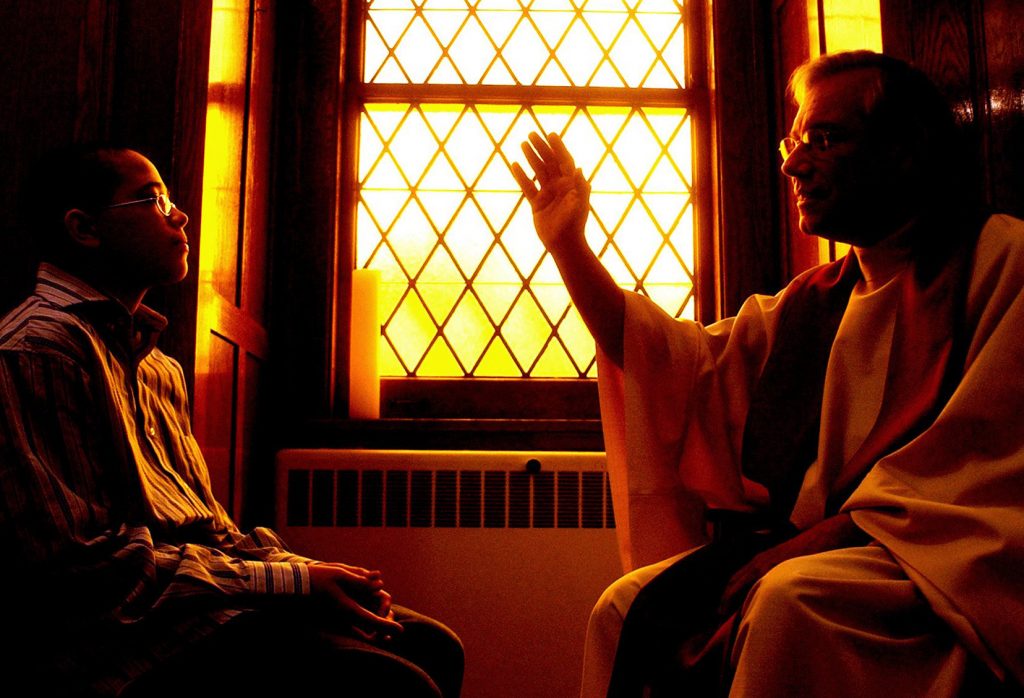
A review in the Wall Street Journal earlier this summer led me to a pop psychology book titled “The Secret Life of Secrets: How Our Inner Worlds Shape Well-Being, Relationships, and Who We Are” (Crown, $28) by Michael Slepian.
As someone whose profession involves dealing with people’s secrets, I had expected a more philosophical approach than what the author provided.

Slepian comes at the topic with both personal and professional interest. He teaches at the prestigious Columbia Business School in New York, but perhaps more critically, he learned as an adult that he was the product of an artificial insemination by an anonymous donor.
Despite the topic’s potential for tackling such an important topic, this book is quintessentially feel-good pop psychology — Slepian is only worried about how concealing secrets produces negative emotions. Not once did he mention the word “conscience.”
One of his asides — that secrets can cause “shame, isolation, and uncertainty” — touched on something I am particularly interested in as a priest.
“When we keep a wrongdoing secret,” he mused at one point, “we escape our justly deserved punishment, and therefore miss out on an opportunity to restore our sense of moral worth. Outside of something like a Catholic confessional, how could you hold yourself accountable for a secret wrongdoing?”
His conclusion is that these very real bad consequences of secrets are about the feelings of the secret keeper more than questions of right and wrong. His emphasis on shame seems to cloud the distinction between shame and guilt. Confession of guilt is about ownership: I did this wrong, so I go to God about it.
Shame is about the opinions of others, and distracts a person from remembering his or her worth given by our Creator. I never tire of telling people, “God made you for better things.” That idea is the source of self-respect, which is more important than self-esteem.
Despite his reference to the confessional, the book’s treatment of secrets is godless. The author gives an example of a young unwed mother who inadvertently suffocated her baby with a pillow while trying to stop his crying. Fifty-two years later, she confessed to her responsibility and said she felt “guilty” all her life, but there is no mention of God in the story. She just wanted to “correct the record” — not ask forgiveness, just accept punishment.
Our psychologist, like many guilty parties, is more interested in breaking down people’s experience of isolation than helping them to live more upright lives. He does not want to be rigid about morality.

(Amazon)
Reading a psychological study of secrets made me recall a masterful story by Alice Munroe, the Canadian Nobel Laureate in Literature. At the beginning of the narrative, an old friend asks a woman to get her a priest. The friend is in the hospital and the woman, although she is not herself Catholic, calls various parishes to find a priest in haste. Then we are shown why the friend is desperate for a priest to attend her.
We are taken back to the time when the two women are teenagers. At a summer camp, they are bothered by a girl with disabilities who seems to hang on them and whom they mock mercilessly.
This girl comes up to them where they are swimming, and what begins as a prank ends in a drowning. No one ever found out that the two friends were responsible. Now the woman was dying, and her friend figures out why she wants to see the priest. The secret had to be confessed.
I won’t reveal any more spoilers, but the story has significance at a time when many people have forgotten about the sacrament of penance. Our belief in the forgiveness of sins is connected with the crucial confession of them. Since I work with many people fighting addictions, I still hear a good many people confess their sins and failures — more in my office than in the confessional.
Many people in Alcoholics Anonymous repeat the proverb, “You are as sick as your secrets.” I think Slepian could learn something from hearing someone’s “Fifth Step,” when an alcoholic tells God and another person about the failures and resentments of a lifetime. It is not just the therapy of “getting things off your chest.” It is about a change of direction in life and a handing over of one’s will to God.
“The Secret Life of Secrets” says confessing your secrets is good for your emotional life. But more importantly, I would say, it is necessary for your spiritual life. As Catholics, we believe that confession is primarily good for the soul.
I say to my penitents/counselees, “The devil doesn’t like daylight.” When you put your weakness, your temptations, and your sins in the daylight, the demons skip away like cockroaches in a spotlight. Being completely honest about our sins and secrets is absolutely necessary.
A good book would describe how confession of sins not only avoids the problem of whom to confide in but also is the source of healing. A sacramental confession is not a search for a confidante, but a way out of a spiritual cul de sac.
Confession is not the same as therapy, although sometimes it’s compared to it. Woody Allen has a character say in a movie something about being in therapy for 12 years without results and, “I’m giving it another year and then I’m going to Lourdes.” Self-knowledge is important but cannot be a substitute for a remedy — the action of God’s grace.
The confessional is not about the secret life of secrets but about life — true spiritual life — after secrets.





GIPHY App Key not set. Please check settings